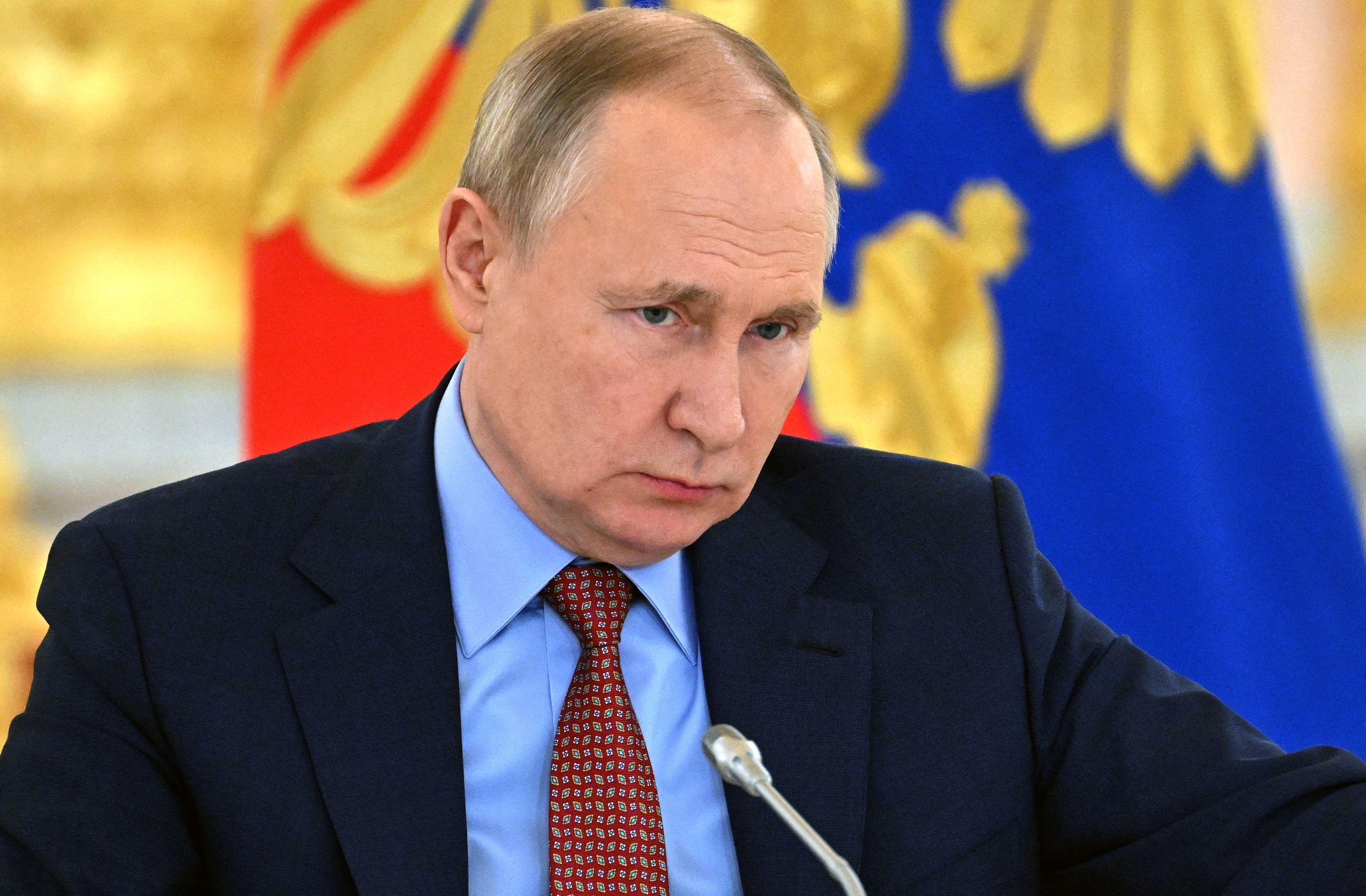Shock and awe: An unprecedented financial conflict
How will Russia stay financially afloat?

A free daily email with the biggest news stories of the day – and the best features from TheWeek.com
You are now subscribed
Your newsletter sign-up was successful
The smartest insight and analysis, from all perspectives, rounded up from around the web:
Never has a major world economy been handcuffed by the kinds of financial restrictions that have been imposed on Russia, said Patricia Cohen and Jeanna Smialek in The New York Times. Just days after Ukraine was invaded, its Western allies "froze hundreds of billions of dollars of Russian assets held in their own financial institutions; removed Russian banks from the SWIFT messaging system; and made foreign investment in the country exceedingly difficult, if not impossible." The Russian ruble sank to a record low while Russian stocks on the London exchange lost more than 90 percent of their value last week. Russia has learned that "autonomy is a myth in a modern globalized world." However, "the West's overwhelming control could encourage other nations to create alternative financial systems" that can resist future sanctions.
Disentangling a country from the current financial system is no simple task, said Gillian Tett in the Financial Times. "The full impact of sanctions" won't be realized until March 12, the date of formal exclusion of seven Russian banks from the SWIFT messaging system that lets institutions send and receive transfers internationally. We also simply "do not know how a freeze of Russian assets will ricochet around interlinked contracts." In response to the sanctions, Russia is requiring companies to pay their debts in rubles, leaving derivatives tied to $41 billion in debt in limbo, with questions about exactly what constitutes a default. The fear is that sanctions will create further problems — or "contagion" in the world financial system's pipeline.
The Week
Escape your echo chamber. Get the facts behind the news, plus analysis from multiple perspectives.

Sign up for The Week's Free Newsletters
From our morning news briefing to a weekly Good News Newsletter, get the best of The Week delivered directly to your inbox.
From our morning news briefing to a weekly Good News Newsletter, get the best of The Week delivered directly to your inbox.
There was a loophole in the SWIFT penalty, said economist Noah Smith in his Substack newsletter: Russian banks can still use it for energy payments. "Since energy is the main thing Russia exports," the West did not "really unleash the full power of the SWIFT cutoff." This week, however, President Biden announced that the U.S. would no longer buy Russian oil and gas, said Eric Levitz in New York magazine. And most of the big oil companies had already created a de facto embargo, because they "don't want to be seen bankrolling war crimes."
"Weaponizing the monetary system against a G-20 country will have lasting repercussions," said Jon Sindreu in The Wall Street Journal. To isolate itself from potential sanctions aimed at debasing its currency, Russia stockpiled one of the world's largest reserves of foreign currency — $640 billion. Half that sovereign wealth, however, is held by Western central banks that have now been cut off from dealing with Moscow. This raises questions about "the entire artifice of 'money' as a universal store of value." If currency balances can no longer "guarantee buying essential stuff, Moscow would be wise to stop accumulating them" — and other nations may follow suit. China, for example, "owns $3.3 trillion in currency reserves" that it now knows could be rendered worthless. It will be hard to hold all that in renminbi, but "stockpiling commodities is an alternative." Economists have long equated currency reserves to "savings in a piggy bank." The Russia sanctions may have just broken the bank.
This article was first published in the latest issue of The Week magazine. If you want to read more like it, you can try six risk-free issues of the magazine here.
A free daily email with the biggest news stories of the day – and the best features from TheWeek.com
-
 What is the endgame in the DHS shutdown?
What is the endgame in the DHS shutdown?Today’s Big Question Democrats want to rein in ICE’s immigration crackdown
-
 ‘Poor time management isn’t just an inconvenience’
‘Poor time management isn’t just an inconvenience’Instant Opinion Opinion, comment and editorials of the day
-
 Bad Bunny’s Super Bowl: A win for unity
Bad Bunny’s Super Bowl: A win for unityFeature The global superstar's halftime show was a celebration for everyone to enjoy